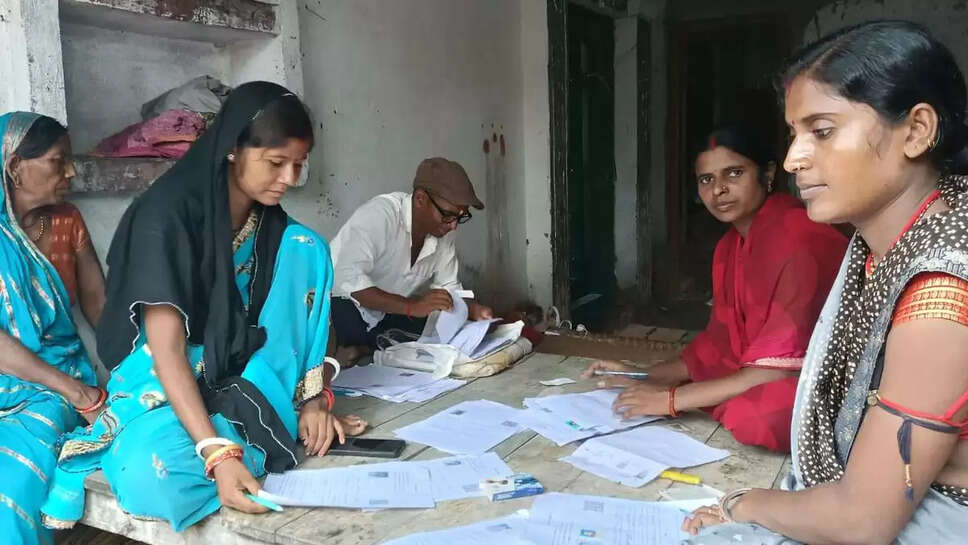CPI(ML) tells EC: Stop Bihar’s SIR process before voters are erased

In a high-stakes meeting with the Election Commission, the Communist Party of India (Marxist-Leninist) Liberation [CPI(ML)] raised serious objections to the ongoing Special Summary Revision (SIR) process in Bihar, calling for its immediate suspension. The party warned of a looming danger of mass disenfranchisement, particularly among the poor, marginalised, and rural voters.
The CPI(ML) delegation submitted a formal memorandum to the EC, urging the constitutional body to intervene swiftly and halt the ongoing survey and voter revision exercise. According to the party, the procedure, if allowed to continue in its current form, could lead to large-scale deletion of genuine voters from the electoral rolls—affecting democratic participation in the upcoming elections.
🧾 What Is the SIR?
The Special Summary Revision (SIR) is an annual or bi-annual process by which the Election Commission updates electoral rolls. It typically includes field verification, deletion of deceased or shifted voters, and enrollment of new voters who have turned 18.
However, the process in Bihar has drawn scrutiny, with CPI(ML) and other opposition parties alleging that it is being conducted with secrecy, haste, and political motives—especially in vulnerable constituencies.
🚨 The Party’s Core Concerns
CPI(ML)’s main contention is that the current implementation of the SIR in Bihar is being carried out without transparency or sufficient public awareness. The party argues that many voters, particularly daily-wage labourers, Dalits, landless farmers, and the homeless, are being disproportionately affected because they are not present during door-to-door verifications.
They highlighted instances where voters returned to their villages only to find their names missing from the rolls, and had no clue that verification even took place.
Another concern was the overreach of local administrative officials, some of whom, the CPI(ML) alleges, are using the process to target opposition strongholds or selectively delete names.
📣 CPI(ML)'s Key Demands to EC
In their memorandum, the party outlined several demands to ensure fairness in the electoral process:
-
Immediate suspension of the ongoing SIR in Bihar.
-
Public disclosure of the methodology used in the verification and deletion of names.
-
Clear guidelines and oversight mechanisms to prevent arbitrary removal of voters.
-
A re-verification process for any name proposed to be deleted.
-
Wider public awareness campaigns using newspapers, radio, and local media.
-
Independent observers to monitor the SIR in sensitive districts.
They warned that failure to implement these measures would compromise the credibility of elections and undermine democratic participation.
👥 Who Could Be Most Affected?
The party noted that Bihar's most vulnerable citizens are at the greatest risk. These include:
-
Migrants who are frequently away from home due to work.
-
Landless labourers with no fixed address or documentation.
-
Minority groups, often disproportionately affected by administrative errors.
-
Homeless and pavement dwellers in urban areas with no official housing records.
In the absence of a robust grievance redressal mechanism, these groups have little to no recourse to reclaim their voting rights once names are removed.
🗣️ Political Reactions Intensify
The CPI(ML)’s protest adds to a growing chorus of political voices questioning the transparency of the SIR. While the ruling administration maintains that the process is in line with EC guidelines and necessary for a clean voter list, the opposition continues to insist that it is being weaponised for political gain ahead of state and national elections.
Several other parties, including the RJD and Congress, have echoed similar concerns in recent days, hinting at a broader resistance movement unless reforms are urgently introduced.
🧑⚖️ The EC’s Response So Far
The Election Commission, while receiving the CPI(ML) delegation, assured that it would look into the matter seriously. However, no official statement has been made regarding the halting or review of the SIR.
Sources suggest the Commission may issue revised guidelines or request detailed reports from District Election Officers (DEOs) in areas where complaints have surged.
📢 Civil Society Weighs In
Outside the political sphere, civil society organisations and election watchdogs have also raised red flags. They argue that digital illiteracy, lack of awareness, and administrative opacity are creating ideal conditions for voter suppression.
Several NGOs working in tribal and rural regions claim that entire villages have seen bulk deletions without notice. With the Lok Sabha elections less than a year away, they warn that such actions could be viewed as institutional disenfranchisement if not reversed or remedied soon.
🔍 Can the SIR Be Fixed?
Analysts suggest that the solution may lie not in halting the SIR entirely but in making it more transparent, accountable, and inclusive. Suggestions include:
-
Publishing real-time deletion lists online for public review
-
Creating a grievance cell in every district
-
Using local elected representatives to verify deletions
-
Allowing re-enrollment windows with simplified documentation
-
Integrating SMS or app-based alerts to notify citizens about verification visits
🗳️ What’s at Stake?
With the 2025 Bihar Assembly elections on the horizon, voter rolls will play a decisive role in the outcome. Any large-scale deletions could significantly affect margins in closely contested seats.
More importantly, the legitimacy of any future electoral outcome will rest on the integrity and inclusiveness of the voter list.
The CPI(ML)’s intervention underscores that voter rights are not just procedural, but deeply tied to democratic dignity and representation—especially for India’s poorest and most marginalised.
.jpg)